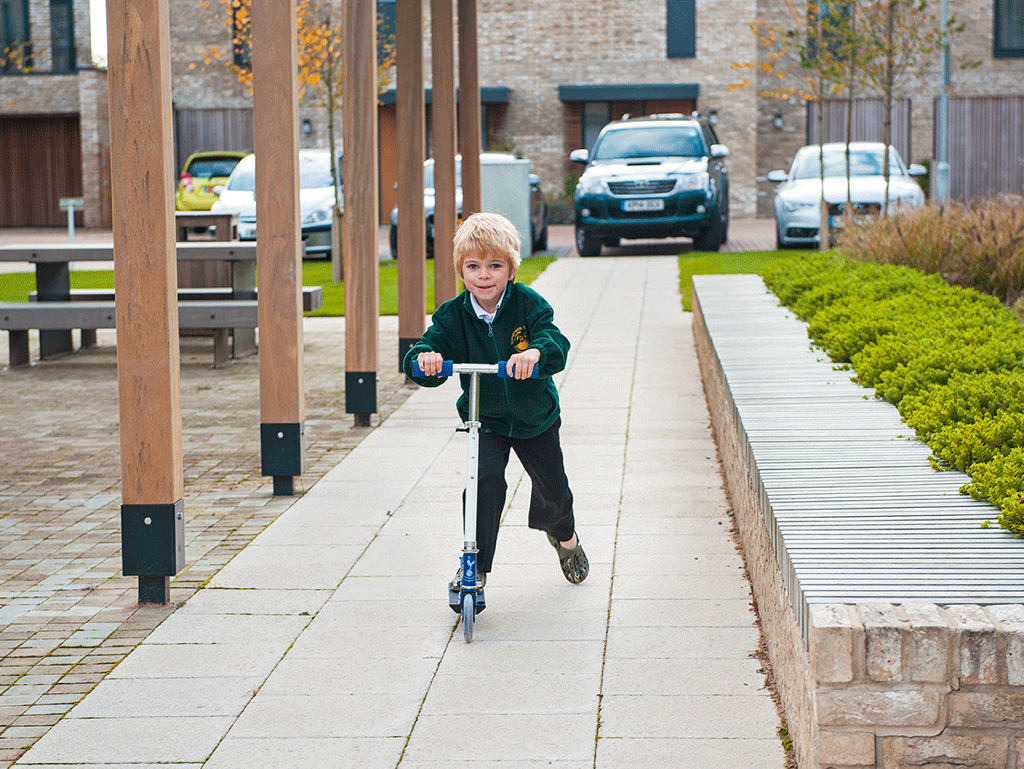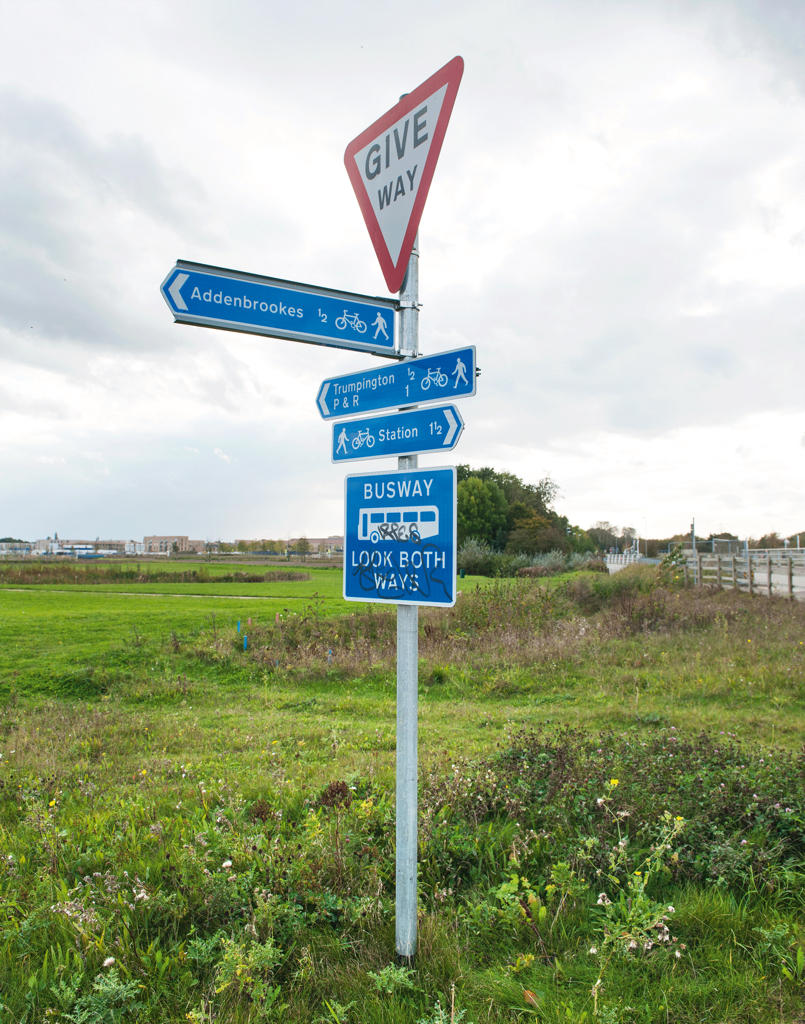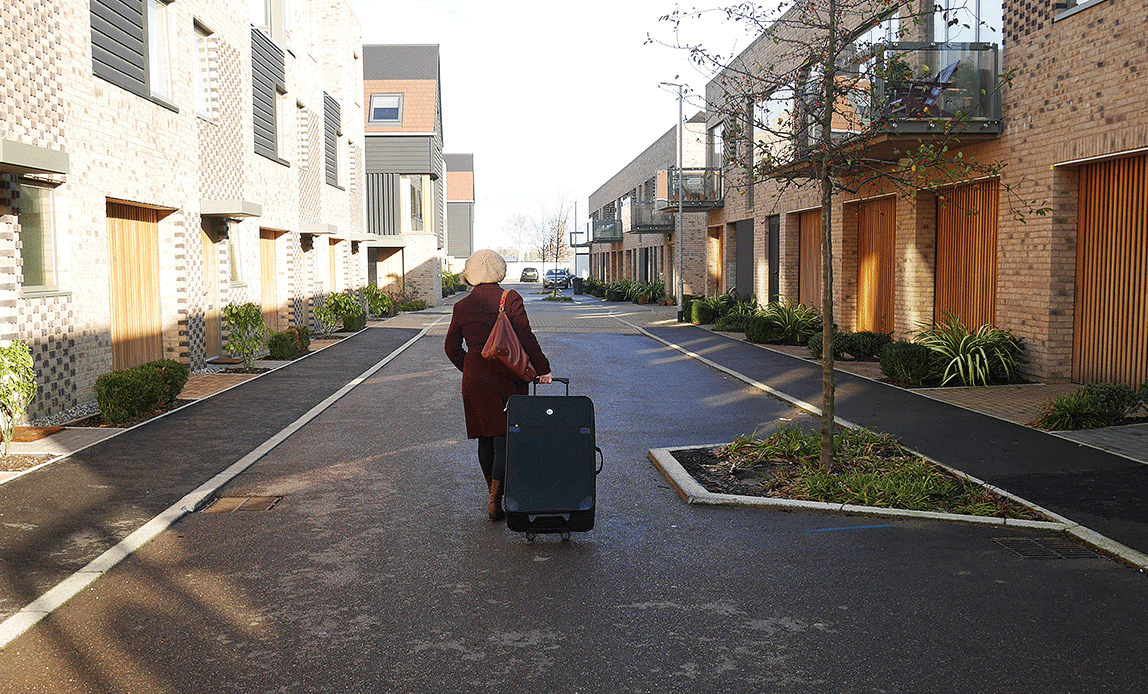
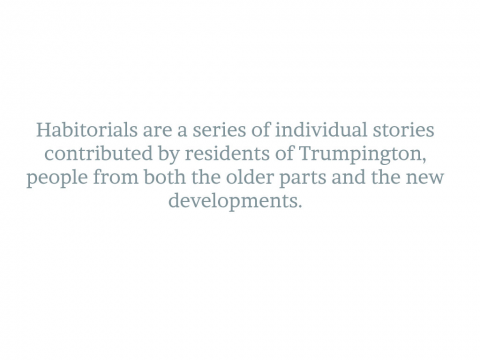
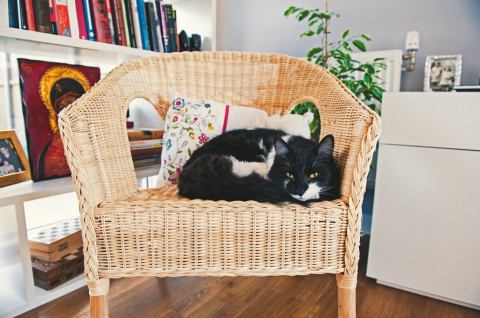
They are stories about home and pride of place
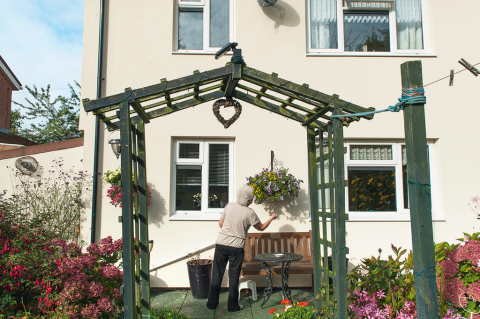
About memories of the past and desires for the future
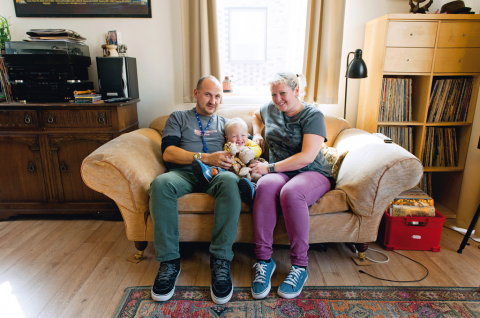
about family and community
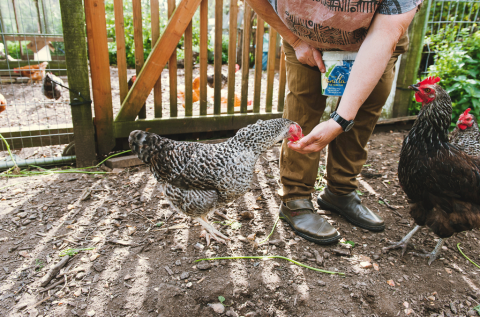
gardens, kitchens, chicken and shops
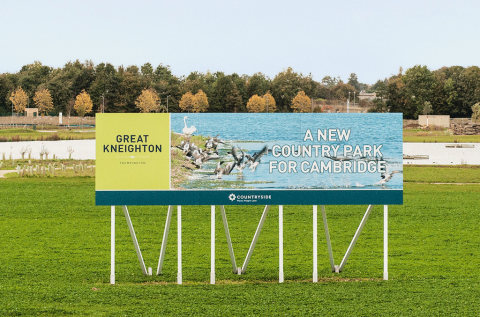
worries and hopes
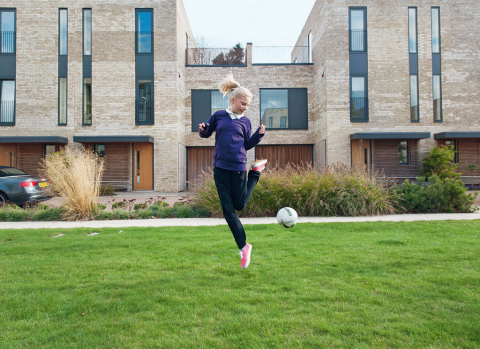
about day-to-day living and about change
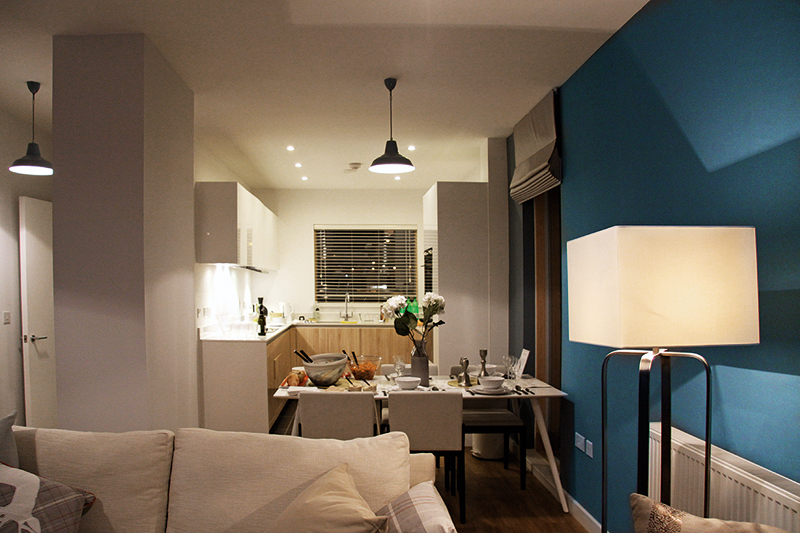
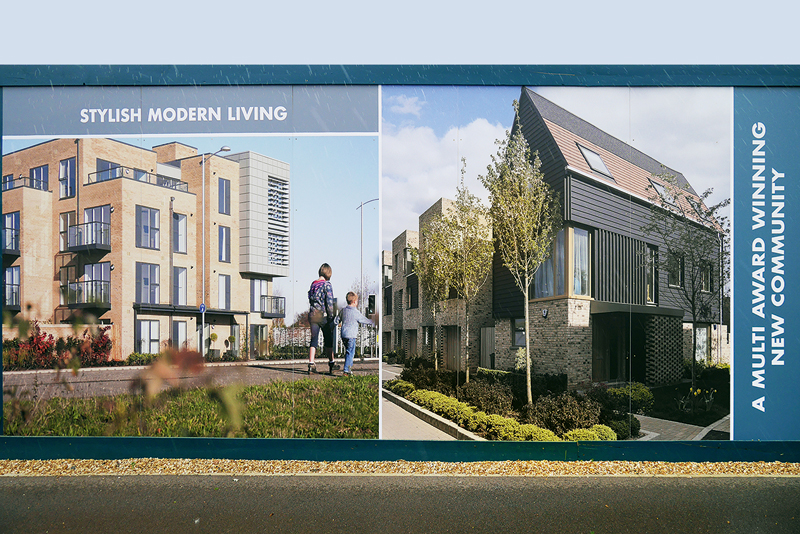
Lives inSefton Close (off Scotsdowne Road)
Moved to Trumpington in1990
Type of housing4-bedroom detached house, built in the 1960s
Current market valuearound £420,000 (according to Zoopla)
Favourite place in Trumpington“Byron’s Pool is my number one spot. I like the wildlife and the peace and the water and the trees, and all that stuff, which is wonderful.I also have also a fondness for the railway crossing that goes across the fields to Addenbrooke’s Hospital. My husband Jimmy (then my boyfriend) and I walked down there one evening when we were commuting between London and Cambridge and had a conversation about our future. We decided there that we were going to stay together long term. A month later I was pregnant. It feels like that spot has a force field under the ground! There’s a bridge there now. I know this isn’t going to be everyone’s cup of tea but I love seeing Addenbrooke’s Hospital on the horizon. Partly because I worked there and partly because we had our wedding reception there, at the Frank Lee Centre.”
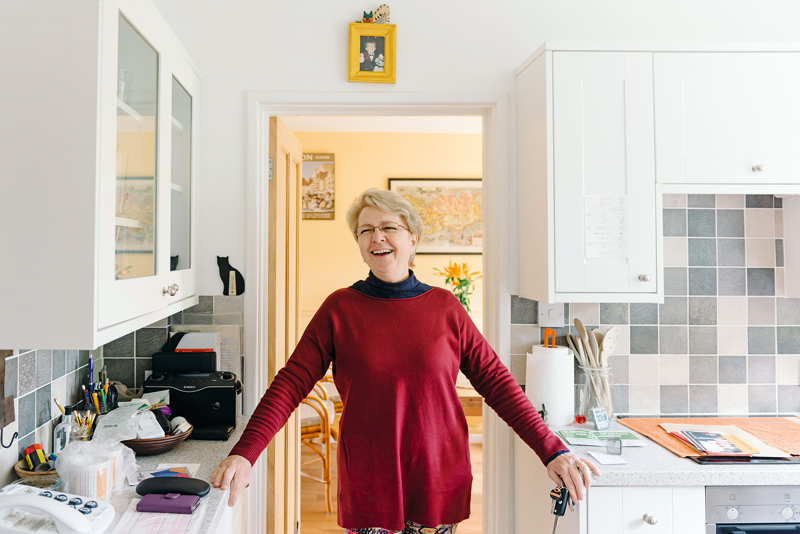
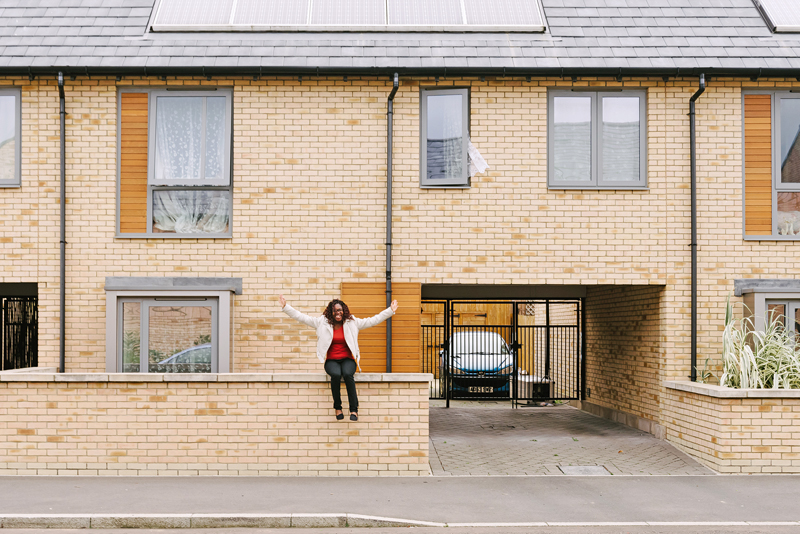
Lives inSpring Drive, Trumpington Meadows
Moved to Trumpington inDecember 2012
Type of housing3-bedroom terraced house, finished in the 2012, rented from housing association
Current market value2, 3 & 4 bedroom houses on the Trumpington Meadows are being advertised from £429,995 to £649,995 on Barratt’s website
Current council rent£165 per week
Favourite place in Trumpington"I love the parks because I love the fresh air I get when I’m out. The atmosphere helps me think up great ideas and I love playing with the kids or watching them play when I take my brother and sister out. It’s always full of excitement and laughter. Even in the horrible winter weather, it never loses its warmth – and I think there’s some beauty in that."
Lives inBishops Road
Moved to Trumpington in2008
Type of housing3-bedroom semi-detached house, built in 1937
Current market valueHouses on Bishops Road have a current average value of £432,257, according to Zoopla
Favourite place in Trumpington"My favourite place in Trumpington is the Cooke Curtis & Co office. Obviously. The reason we liked this location on Trumpington High Street was because everyone knew where the Hobby Shop was. It’s a bit of a shame it closed down, because it was such a landmark, which is why we’ve kept the sign… But we didn’t feel like we were taking away a valuable village resource that could have been something great for the community."
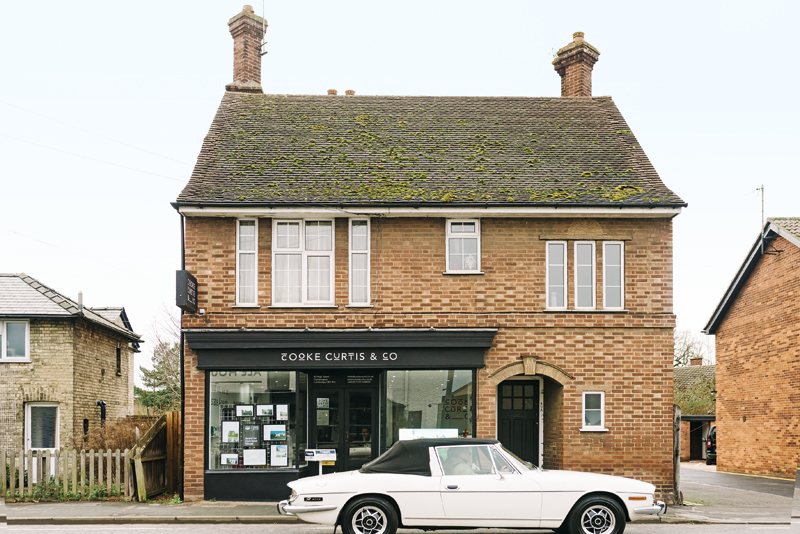
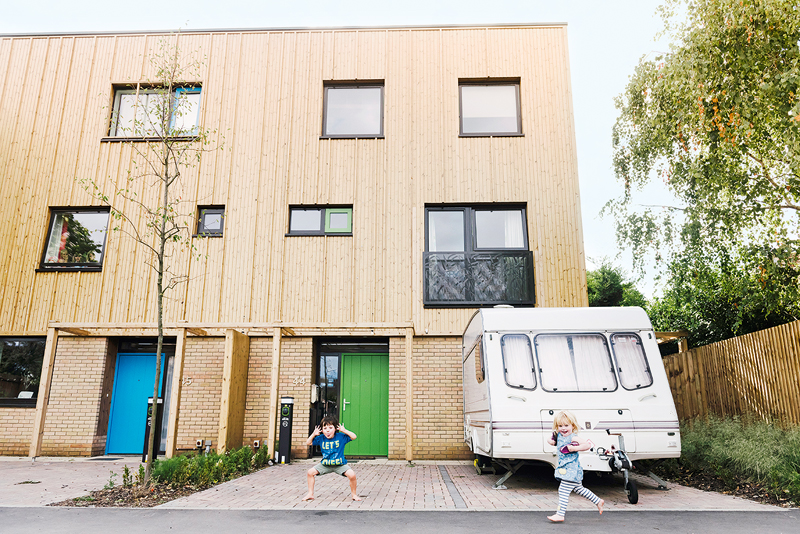
Lives inLingrey Court, behind Anstey Way
Moved to Trumpington inJanuary 2015 (left in January 2016)
Type of housingFour-bedroom, semi-detached eco-home, newly built
Current market valueAround £550,000
Favourite place in Trumpington“Our favourite place in Trumpington is the park and field in the Foster Road estate – the children also love it too!”
Lives inBishops Road
Moved to Trumpington in1974
Type of housing2-bedroom detached house, built in 2013
Current market valueHouses on Bishops Road have a current average value of £432,257, according to Zoopla
Favourite place in Trumpington"Shirley’s favourite place is her own garden, while Stephen’s is away from the city in the countryside."
Please note: some of the images included with this article were supplied by Stephen Brown. The image of the Plant Breeding Institute is supplied courtesy of the PBI. The black and white image is courtesy of Maurice Rayner.
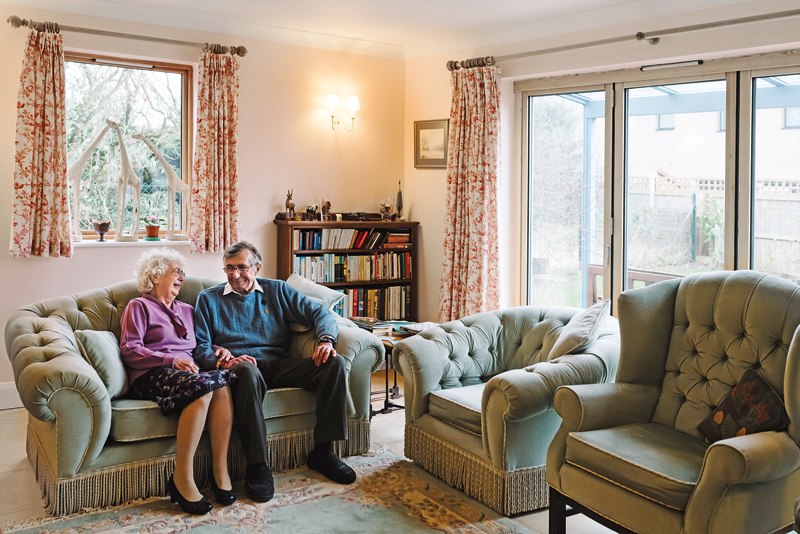
“I found it a very friendly village when we came,” reminisces Shirley, as she bustles around her new open plan kitchen rustling up tea in an old-fashioned teapot complete with tea cosy and homemade cake on china plates.
The Browns met in Uganda, where Stephen worked for ten years at a cotton research station and Shirley worked as a teacher before they were married. But they had to flee the country after Idi Amin’s brutal dictatorship swept to power. Shirley was eight months pregnant with their second child when the couple was forced to pack up a few treasured possessions and leave their life in Africa behind them.
Stephen got a job at the Plant Breeding Institute (PBI) in Trumpington. In its heyday the agricultural research institute had up to 400 staff testing and carrying out research on wheat, maize, potatoes and other crops on the 400 acres of land that has recently become home to the new Trumpington Meadows development and the Trumpington Park and Ride site. Stephen worked there until he retired 16 years ago.
The first house the Browns bought on Bishops Road (number 37) cost just £12,000 back then. Today that same semi-detached house is worth nearly £600,000, according to the website Zoopla. In 1986 the couple and their three children moved up the housing ladder and further along Bishops Road to a rather grand four-bedroom detached house built in 1952 (the same year as the Queen’s Coronation) with a double garage and a 100 foot garden that is worth nearly £700,000 in today’s money (again, according to Zoopla).
Trumpington wasn’t somewhere Stephen expected to end up. As a Cambridge postgraduate student early in the 1960s, he used to cycle south from the city and into the open fields and villages beyond.
“The first time I cycled out here I thought ‘goodness me, where are we?’” he recalls. “We were completely out in the countryside.”
But he and Shirley quickly settled in Trumpington with their growing family and became pillars of the community.
“When we arrived it was still effectively a village,” says Stephen. “If I give you an example, there was a horticultural society that had been going for decades. They had an annual show, an enormous one, with outside classes from other places and special trophies for it. They had flower shows, vegetable shows, children’s classes, art classes… There were over 150 members then. That gradually ran down and the external classes were dropped. It was moved to a smaller hall and numbers dropped off until gradually nobody was really interested in gardening any more. They just wanted to be entertained. So we put it on ice...”
Stephen puts this dwindling interest down to a gradual change of attitude that he’s seen as people’s lifestyles have changed over the decades.
“I illustrated this at the time by taking a satellite picture of Bishops Road,” he says. “There were nine gardens where people took an active interest in gardening and that sort of thing on this side of the road. When you look at the gardens now there is nothing except a lawn, shrubs, paddling pool and a swing or a slide. They’re not interested in anything else. People just withdrew from that and had a different lifestyle.”
Back in the 1970s, there were lots of local clubs for Shirley and Stephen to throw themselves into – from the Horticultural Society to the Tuesday Group (an alternative to the Women’s Institute) to the Trumpington Elderly Action Group and the Fish Scheme, which organises lifts for elderly residents. But gradually many of these clubs that used to bring local people together have begun to falter as the demographics of Trumpington have changed.
“We had a very active Trumpington Elderly Action Group,” says Shirley. “That’s packing up now. One more meeting and that’ll finish. We cannot get new members and we cannot get people to be on the committee to run it. Nobody’s prepared to do it.”
“If the development had come a few years earlier, it might have saved some of these things,” laments Stephen. “But you see this is associated, I think, with differences of expectations in life. You want your modern televisions, all the other things that go with it, and a lot of women and married people go out to work in order to do that. So when they get home from work, they don’t want to get involved in these other things.”
“As a broad generalisation, the generation after us were more materialistically minded, not so socially minded,” he continues.
“They were more acquisitive. This falls down to the next generation too. It doesn’t apply to everybody, of course. But we think the pendulum is swinging the other way. There’s going to be a two generation gap. But the sad thing is they’re not going to have the benefit of learning from their parents or grandparents about things like cookery, do-it-yourself and gardening.”
“The other thing is that people rely so much on convenience,” says Stephen. “Everything’s ready in the supermarket whereas our generation had to produce it.”
Shirley agrees: “We were also brought up with rationing and we were very limited in what we could buy,” she says. “We’re of a generation that had to manage.”
I found it a very friendly village when we came.
For many years, Stephen grew his own vegetables and fruit in the immaculately tended garden behind the family home on Bishops Road.
“When we had a bigger garden, I used to say: ‘I grows it, Shirley cooks it, we both eats it,’” jokes Stephen. Two years ago, Shirley and Stephen moved into a brand new two-bedroom house that was built on the same plot of land where Stephen used to tend his vegetables for nearly 30 years. He doesn’t grow so much produce these days, although his greenhouse is still his pride and joy.
“The old garden, I couldn’t manage it in the way I wanted it,” admits Stephen. “We’ve got enough now, thinking about it. It’s been a lot of work turning a building site into a garden.”
Sitting in their new open plan living room that holds a lifetime of memories – from African ornaments to historic photos of Trumpington – Stephen and Shirley are content with their decision to downsize at the end of their old garden.
“We decided on what the layout and design of the house should be to start with and then fitted ourselves in accordingly,” says Stephen, who is 76. “A lot of the fittings we brought with us. There have been a few teething problems but we specified what we wanted and we’ve tried to make it as eco-friendly and sensible as possible.”
Their new pink-clad house has solar panels, excellent insulation and a heat exchange system that keeps the house warm in the winter and cool in the summer – as well as filtering air in the house to keep it fresh. As you walk up the long gravel driveway and into the hallway, the house is a surprising mixture of modern design with traditional fittings. And lots of books! Not to mention a picture gallery of colourful drawings by their four grandchildren.
From the master bedroom, you look out across the new housing development Novo, which has been built on what was once the arable fields of Glebe Farm. And in the other direction, the driveway sweeps past their old family home and out onto Bishops Road and Trumpington village beyond.
In some ways, it's a bit sad that it's grown so big.
In some ways, the Brown’s new house is at a crossroads between old Trumpington and the new Trumpington that is growing up around them.
“We knew it was coming and we accepted it,” says Stephen. “But it’s such a shame that the density [of the new housing] is so high. It’s simply because of the price of land. What intrigues me is that there is a lot of infill going on. For example, they’ve built a block of flats where the police house used to be (on Trumpington Road). There’s another example where there was a bungalow near here, they’ve managed to fit three more houses – which is fair enough.”
“The other tragedy was the fact that the PBI was sold to Unilever in 1987,” he adds. “That worked very, very well and then eventually they pulled out of their agricultural production and sold to Monsanto, who sort of broke the place up and then sold it to development.”
“They don’t realise this, but one variety produced there earned the UK billions of pounds in exports,” says Stephen whose colleagues at PBI were responsible for producing crop varieties such as the Maris Piper potato.
Stephen and Shirley did consider other locations when they were planning to move house, but they couldn’t find anywhere to rival Trumpington’s location.
“In moments of reflection, I wouldn’t want to be in a city,” admits Stephen. “I was brought up on a farm in Suffolk. I worked and lived on a station in Africa where we were 17 miles from the nearest town. As you get older, you’ll need the facilities. If we were out in the middle of the countryside now, it wouldn’t be very convenient. Unless you’ve got someone to look after you.”
I'm proud to live in Trumpington.
Shirley’s pull to Trumpington is more of an emotional one. Originally from Yorkshire, she is fiercely proud of where she lives and has produced four lovingly researched books about the area’s history.
“I love it here,” she says, with a lilt that still betrays her Yorkshire roots. “I really do like Trumpington and I get very cross when people say nasty things about it. If anybody asks me where I live I say ‘Trumpington’ but I know several people around who say ‘Cambridge’. I’m proud to live in Trumpington and I wouldn’t want to live in Cambridge. And it just makes me cross that they seem almost ashamed to be in Trumpington.”
In their latest book, Trumpington Through Time – which is available from the local chemist shop, Gregory’s – Shirley writes how Trumpington was a thriving community long before Cambridge became important, with evidence of Iron Age, Roman and Anglo-Saxon settlements. “Manors of Trumpington are listed in the Domesday Book and Trumpington was noted for its vineyards in the thirteenth and fourteenth centuries,” she writes.
“For hundreds of years, Trumpington was an independent village with its parish council and established parish church.” But these days, the boundaries are blurring as the population of Trumpington swells.
“You can’t tell now where Cambridge ends and Trumpington begins,” says Shirley, who is ambivalent about some of the changes taking place. She has only just started shopping at Waitrose because she was so angry when the upscale supermarket was built in Trumpington 15 years ago so close to the local shops on Anstey Way.
“Waitrose had only been there a matter of weeks before those shops had to close,” recalls Shirley. “For a long time, I thought ‘I’ll not use Waitrose. They’ve ruined our village.’ I went to Sainsbury’s, M&S anywhere. But having gone there, it’s not the fault of the people who work in the shop. And they’re very pleasant.”
Trumpington is still hanging onto its right to be included in local postal addresses after a heated letter-writing campaign persuaded Royal Mail not to drop the name entirely. But Shirley does regret that Trumpington’s village atmosphere has started to dissipate as the size of the population has increased over the years.
“In some ways, it’s a bit sad that it’s grown so big,” she says. “Before you almost felt you knew everybody in the village.”
“People did know each other a lot better then,” agrees Stephen, who refers to the new residents moving into Trumpington as being “much more mixed”.
“We’re very fortunate that we get on with our new neighbours,” he says. “I just hope that the community can now be got together. I don’t see many signs of it so far, quite frankly. Whether the new community centre will help that, one hopes.
Stephen wants to get away from the artificial barriers that went up between the post-war council estate in Trumpington and residents in other parts of the village.
“Even a few years ago there was still a ‘them and us’ attitude and I just didn’t want that to come with the new developments, if we could possibly avoid it,” says Stephen, who is resigned to the changes the future might bring.
“We have been part of Cambridge for a long while,” he adds. “People don’t think of Trumpington as a village but just another part of Cambridge. It’s been a gradual change. The new developments will hasten that change…”
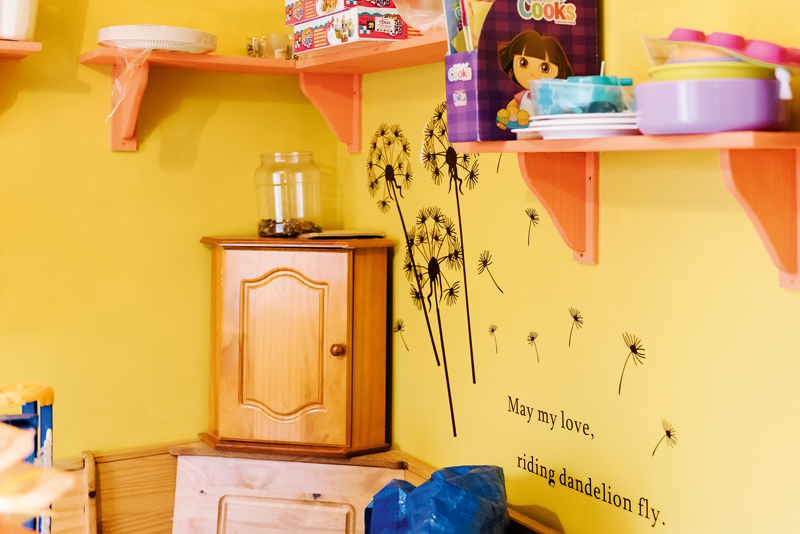
Lives inConsort Avenue, Trumpington Meadows with her husband Derek, 48, and three children (Charlotte, 13; Alice, 10; James, 5)
Moved to Trumpington inOctober 2013
Type of housing4-bedroom terraced house, built in the 2013, rented from housing association
Current market value2, 3 & 4 bedroom houses on the Trumpington Meadows are being advertised from £429,995 to £649,995 on Barratt’s website
Current council rent£168 per week
Favourite place in Trumpington"Some of my fondest memories are of taking the children over to the park near the Pavilion. The children were relaxed and we’d pop into the Bun Shop [on Anstey Way] and get some treats.”
Lives inShelford Road
Moved to Trumpington inSteve and his wife Dee moved to Trumpington in 1972; they share their house with their youngest son Sam, his wife Fran and their two young daughters, Katie and Amy
Type of housing3-bedroom terraced house, built in 1902
Current market valueSimilar houses on Shelford Road have a current value of around £455,000, according to Zoopla
Favourite place in TrumpingtonSteve loves going along to the car boot sale at the Trumpington Park and Ride on Sunday mornings to pick up a bargain. Sam’s favourite spot is the newly named local pub, the Hudson’s Ale House.
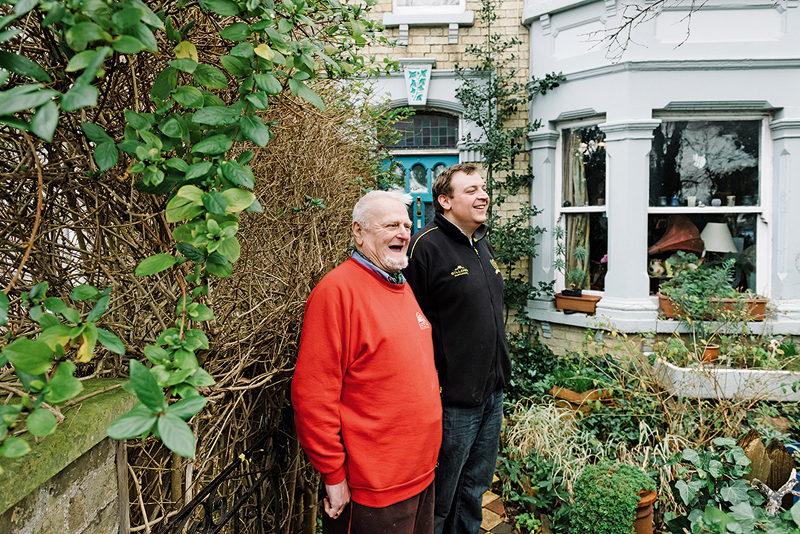
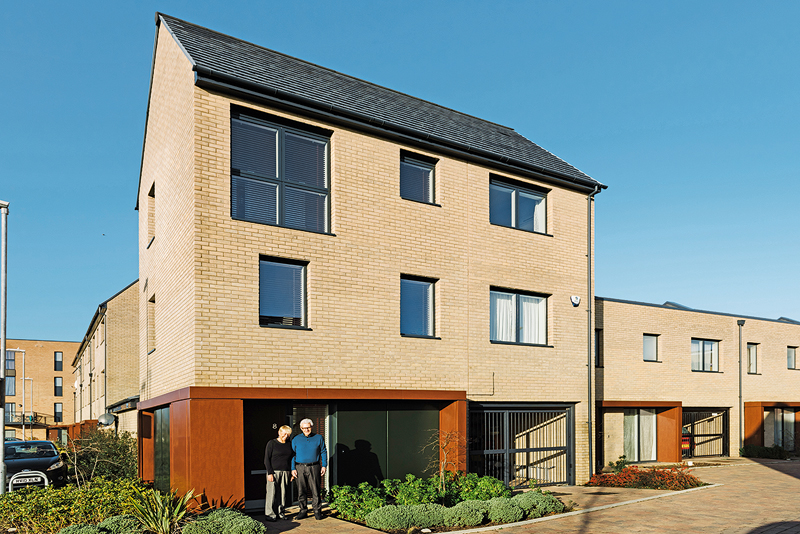
Lives inCedar Road, Novo development
Moved to Trumpington inAugust 2013
Type of housing4-bedroom detached house, built in 2013
Current market valueCurrent value of around £583,000, according to Zoopla (the house cost £490,000 in 2013)
Favourite place in TrumpingtonJen: “My house. I love the sun rises and the sunset. It’s just different every day. It’s fantastic.”
David: “I love the house but I also particularly like the walk down by the River Cam. It’s beautiful down there, it really is."
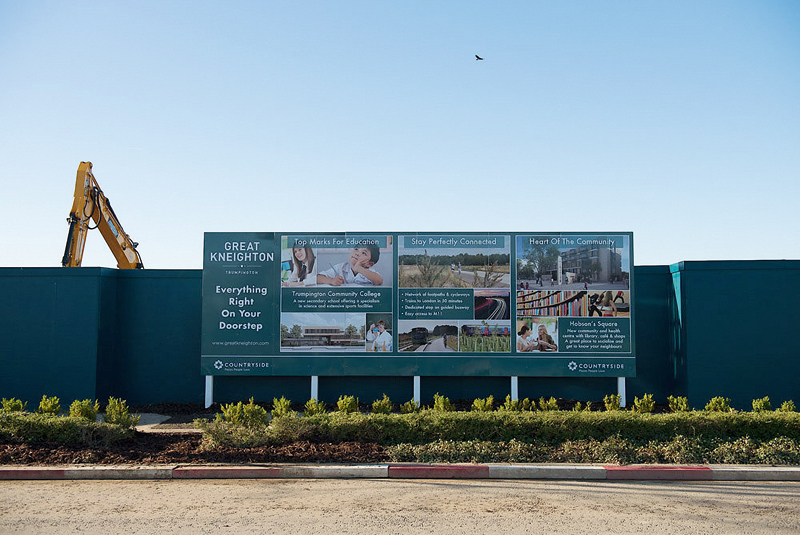
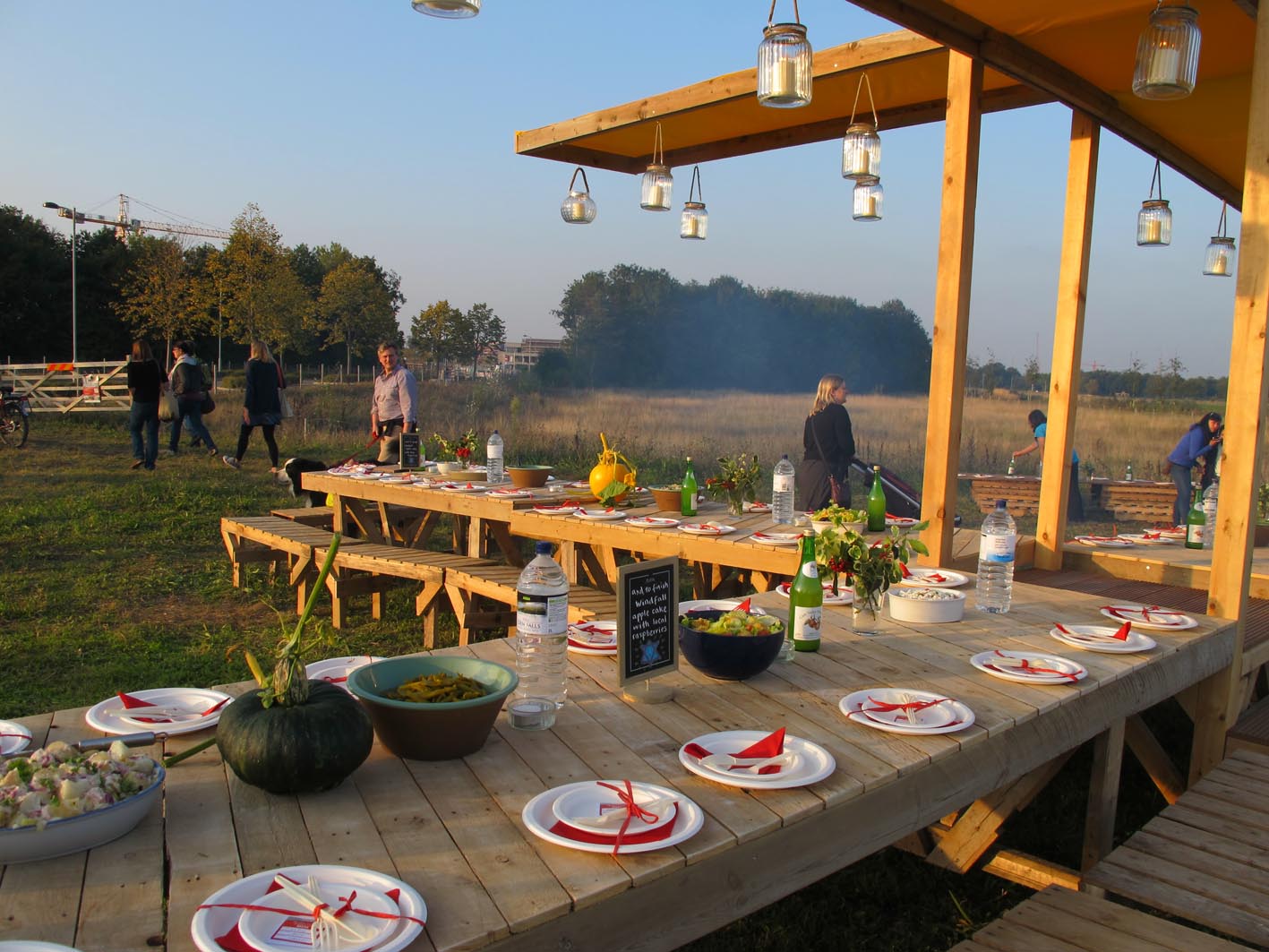

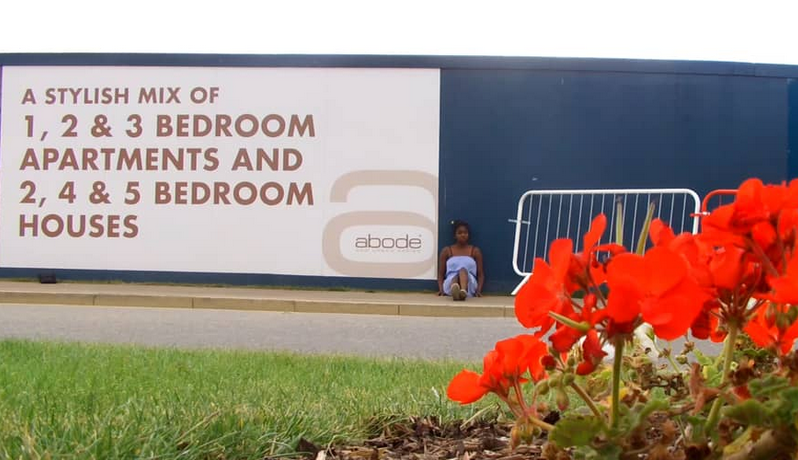
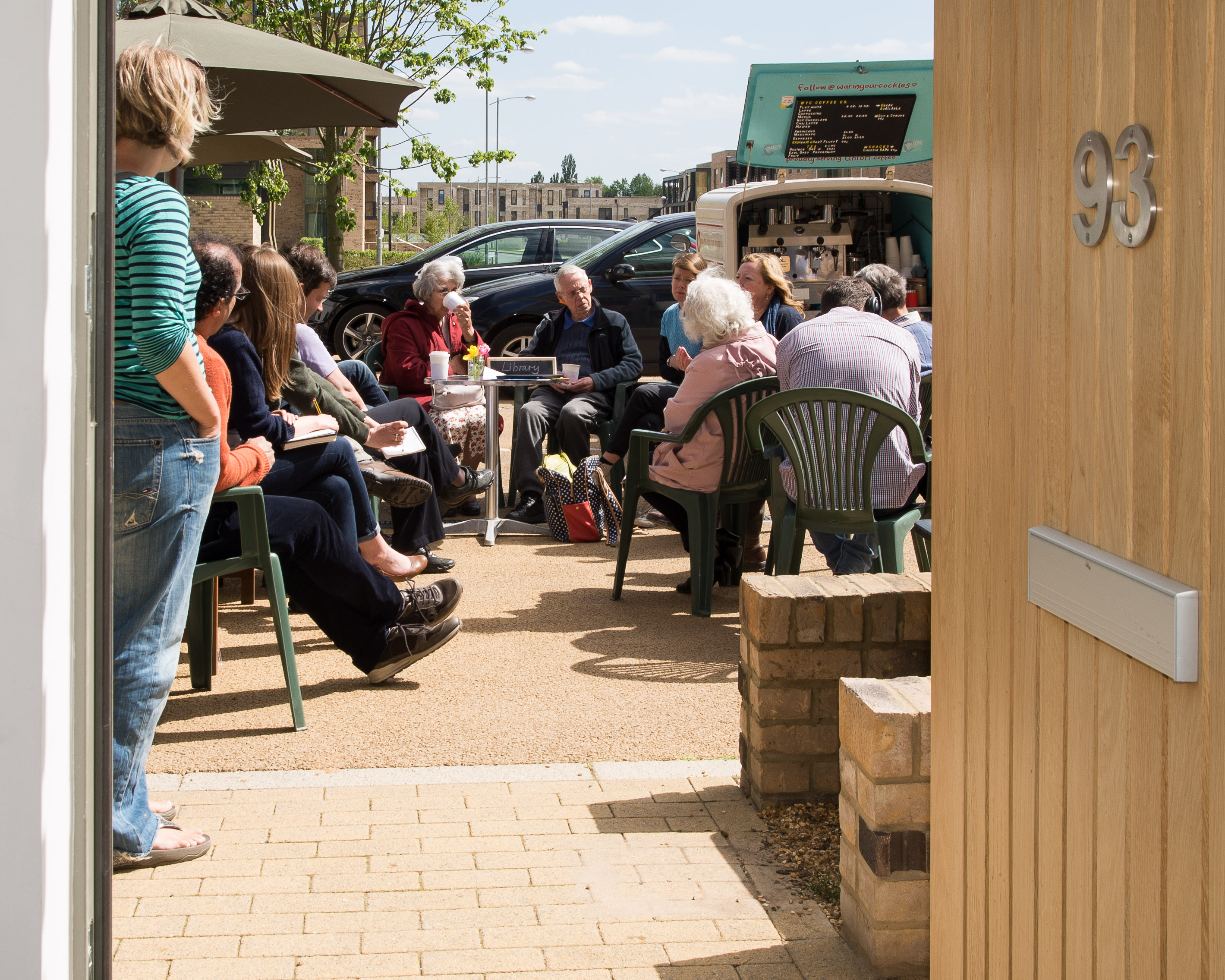
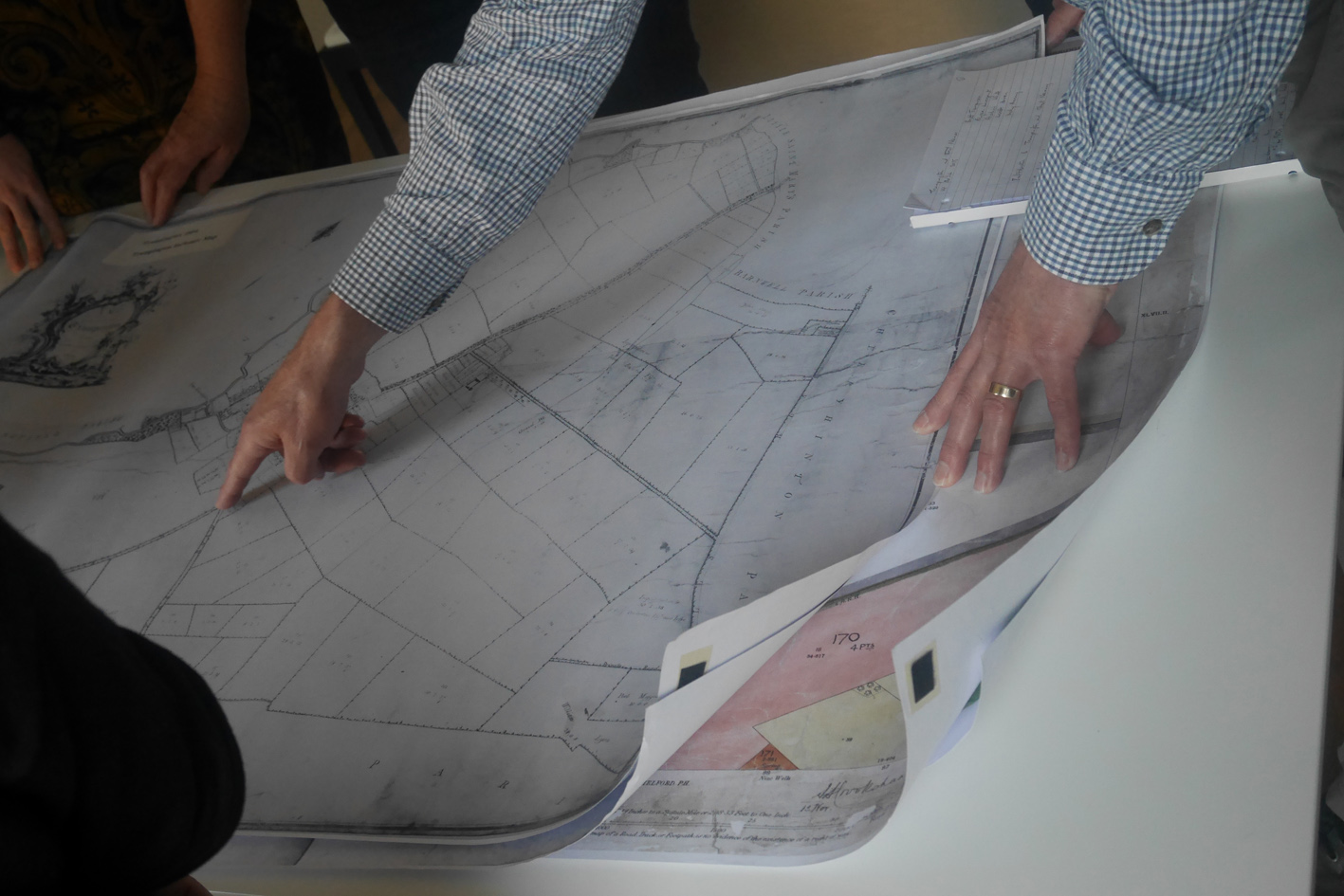
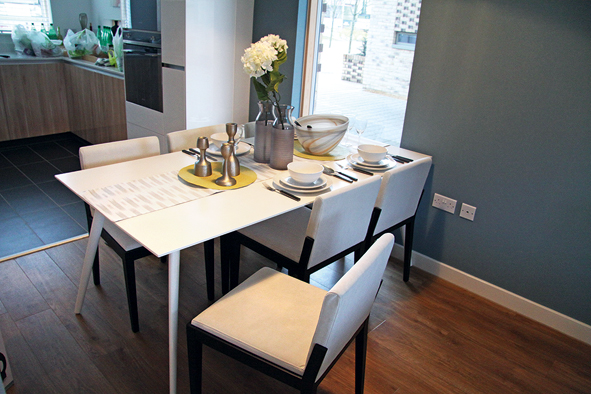
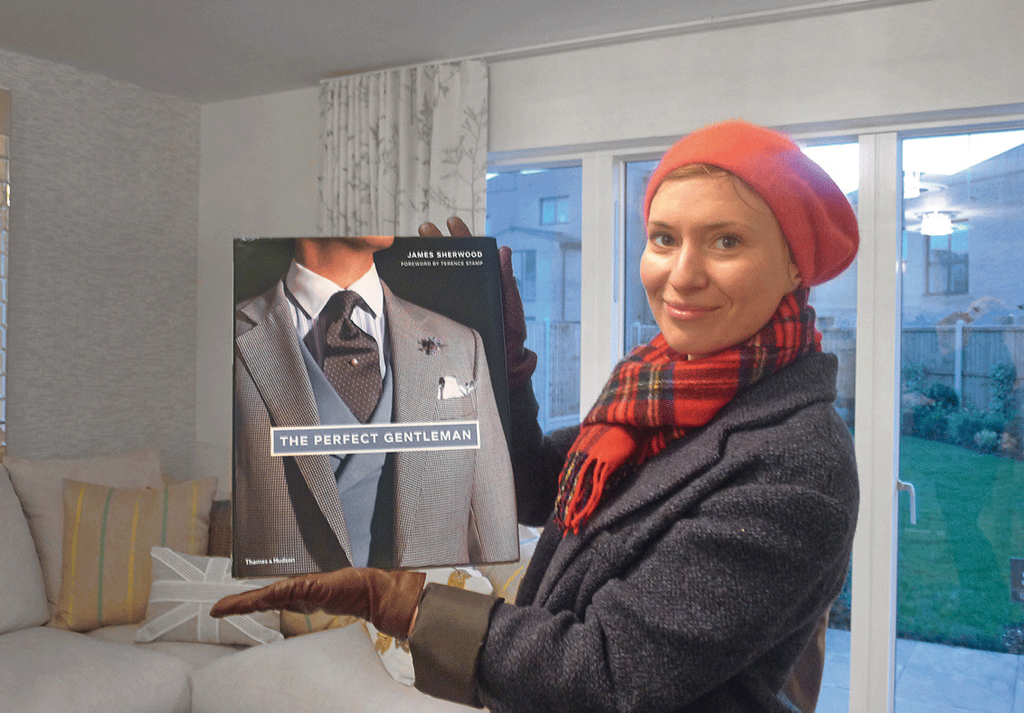
Age81
Lives inByron Square
Moved to Trumpington in1966
Type of housingThree-bedroom, end of terrace council house, built in 1947
Current market valueCurrent market value of around £260,000 (according to Zoopla)
Current council rentApprox £120 per week
Favourite place in TrumpingtonSitting on a chair in her dining room looking out over the recreation ground
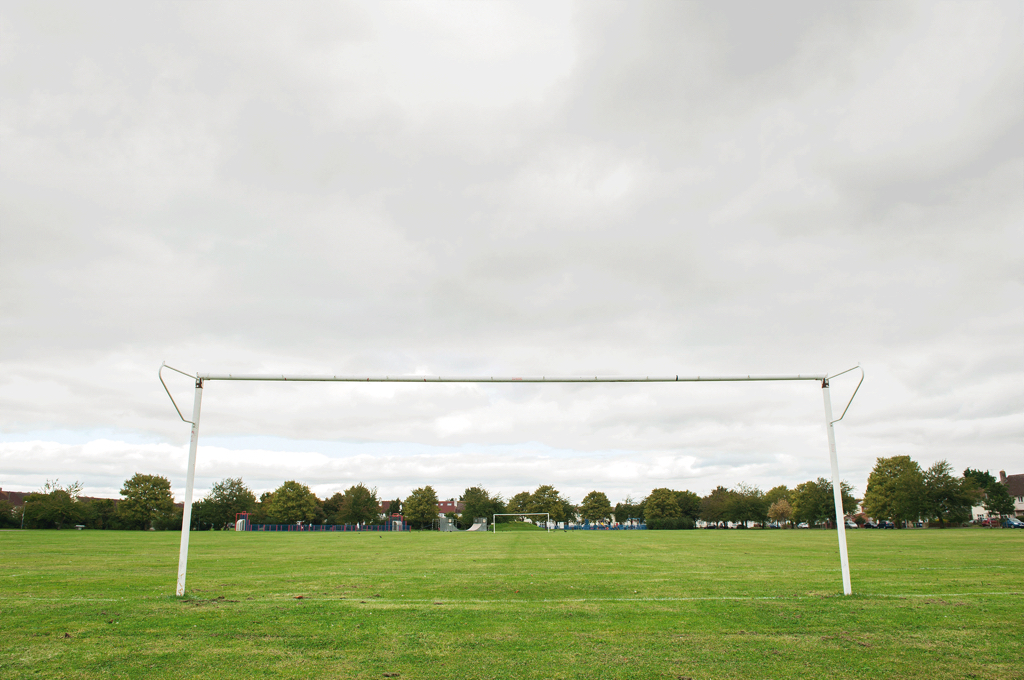
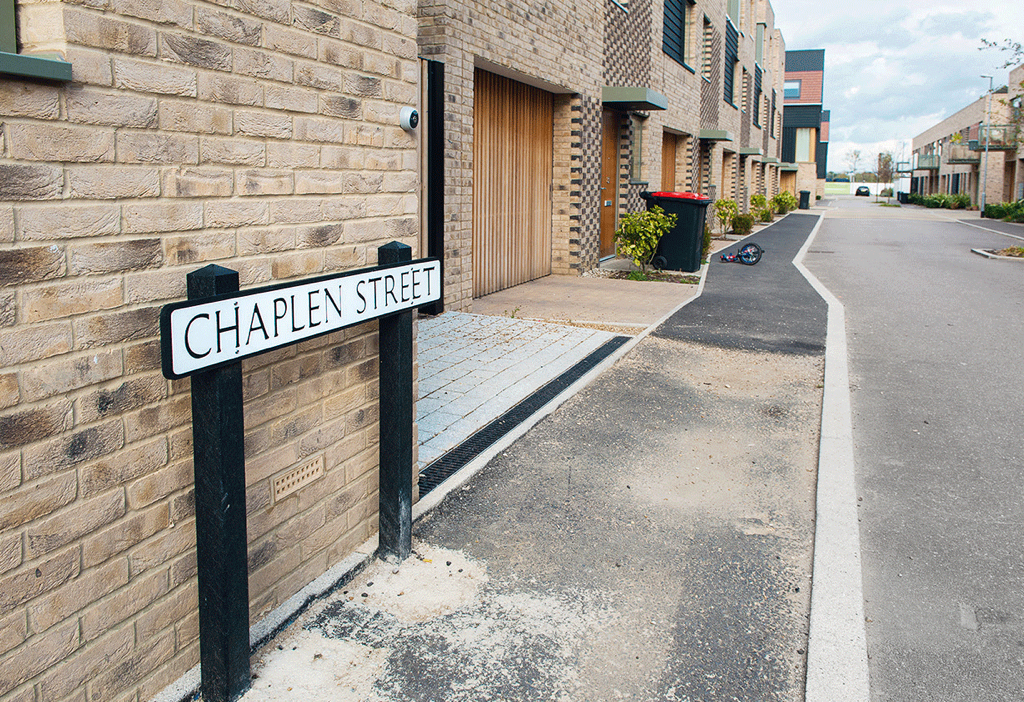
Age36
Lives inChaplen Street
Moved to Trumpington inMarch 2013
Type of housingFour-bedroom, three storey, private house, built in 2013
Current market valueCurrent value Around £534,000 (according to Zoopla)
Age72
Lives inTrumpington Hall
Moved to Trumpington inThe Pemberton family have been resident in Trumpington since 1715. They originally came from Pemberton in Lancashire.
Type of housingManor house first built circa 1600, with 600 acres of land
Current market valueundisclosed
Favourite place in TrumpingtonTrumpington Hall
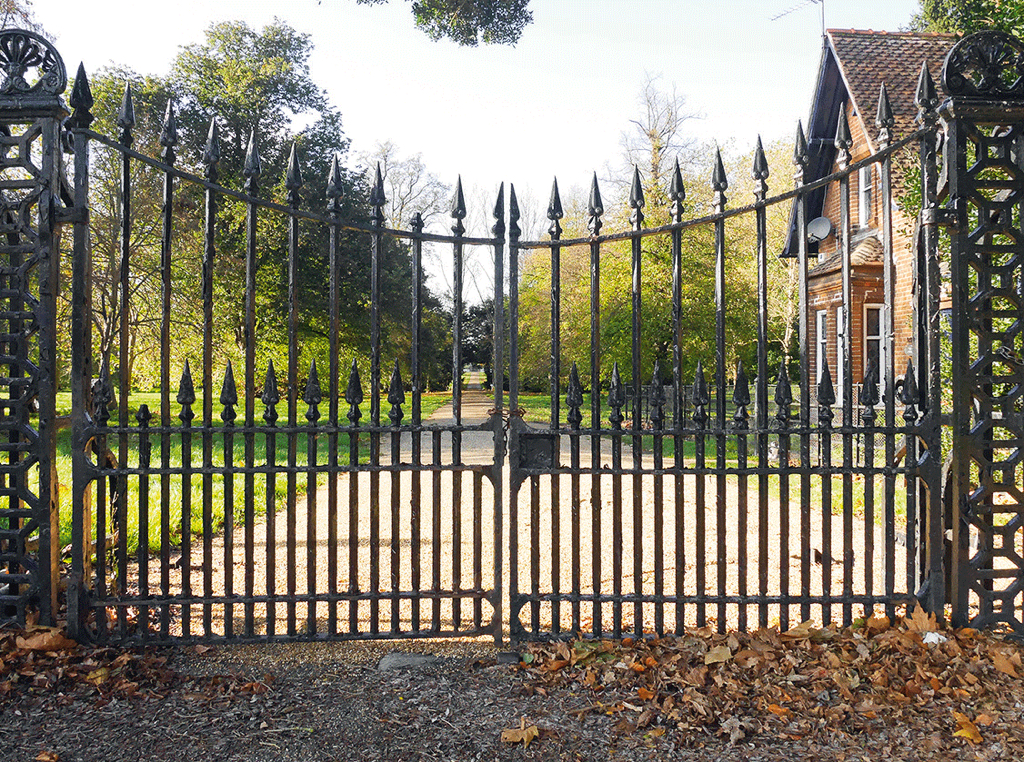
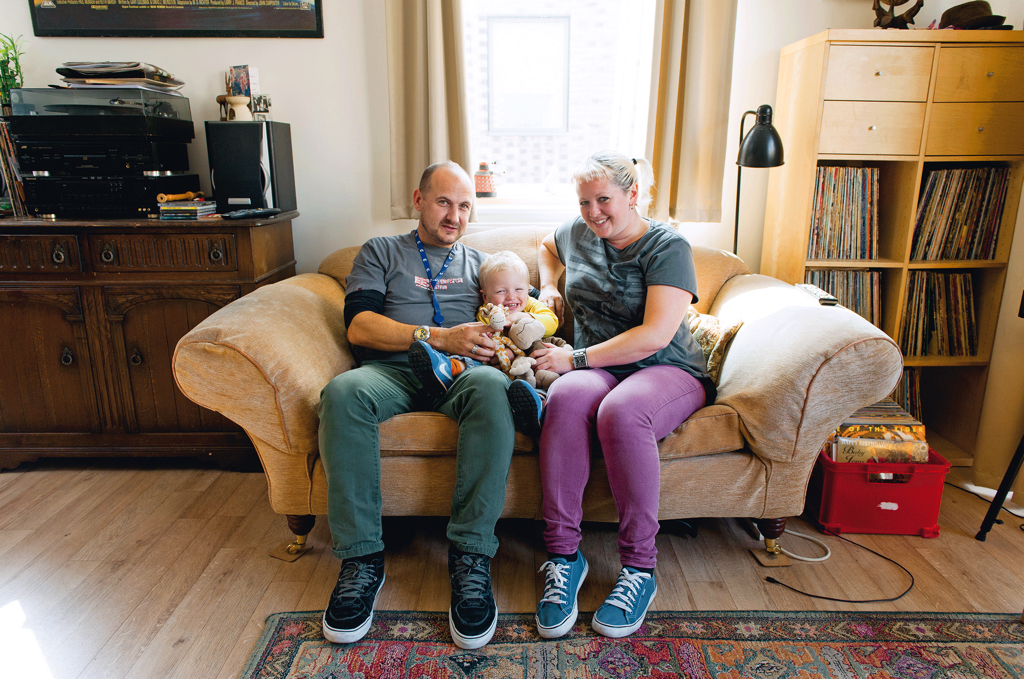
Age31/ 46
Lives inChaplen Street
Moved to Trumpington inMay 2013
Type of housingTwo-bedroom apartment rented from housing association
Current market valueAround £299,000
Current council rent£150 per week
Favourite place in TrumpingtonApart from their home, their favourite place in Trumpington is the beer garden at the Lord Byron, where they like to stop off for a refreshing pint after a Sunday walk to Grantchester.
Age63
Lives inFoster Road
Moved to Trumpington in2003
Type of housingThree-bedroom terraced former council house, built in 1947
Current market valueAround £310,000 (according to Zoopla)
Favourite place in TrumpingtonNine Wells – a nature reserve with several chalk springs that form the source of Hobson’s Conduit, which carries water along Hobson’s Brook into the heart of Cambridge.
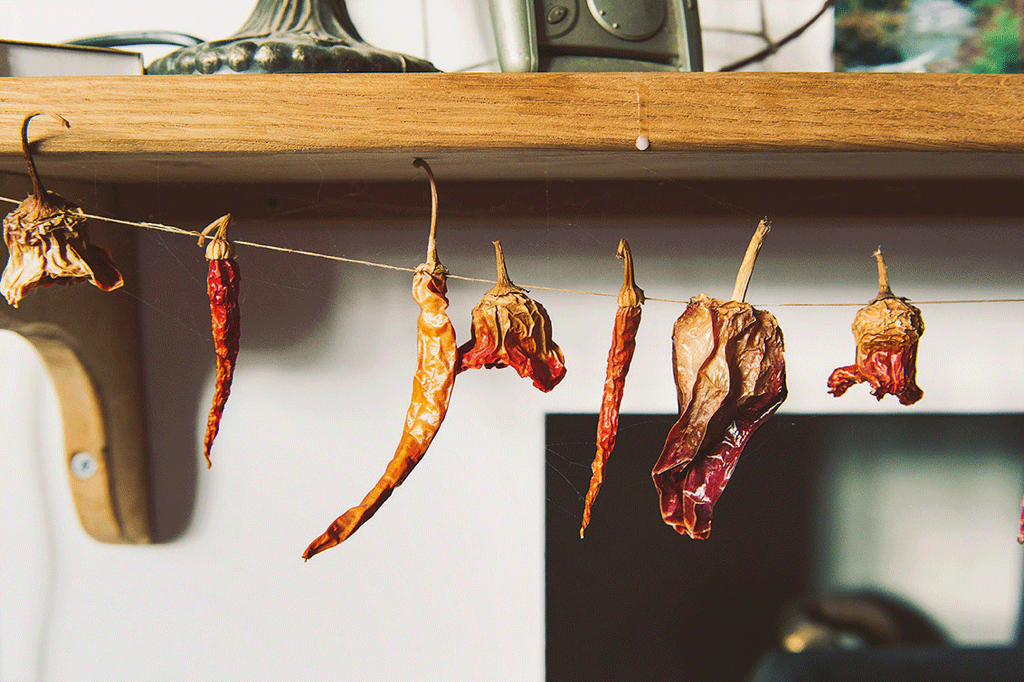

Age18
Lives inPaget Road
Moved to Trumpington in2003
Type of housingThree-bedroom terraced council house, built in 1946
Current market valueAround £250,000 (according to Zoopla)
Favourite place in TrumpingtonCommunity Orchard
Age41
Lives inPartridge Close
Moved to Trumpington inJuly 2013
Type of housingThree-bedroom end of terrace house, rented from housing association
Current council rentAround £154 per week
Favourite place in Trumpington“I love my house”
